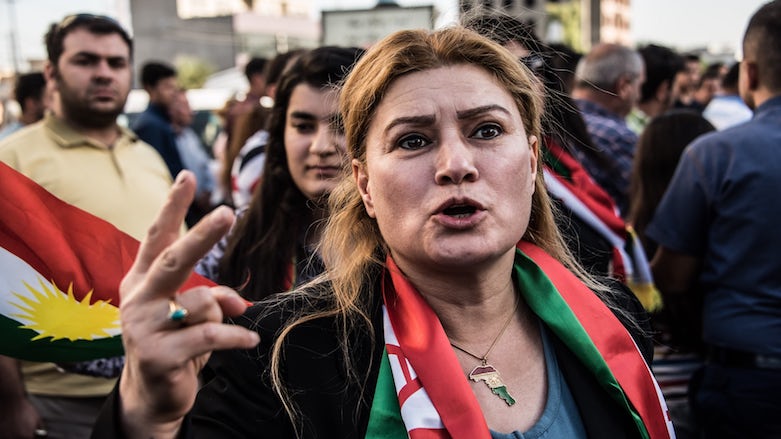UK failed to support Middle East ally: Iraqi Kurds

WASHINGTON DC, United States (Kurdistan 24) – London has failed to support one of its important Middle East allies—Iraq’s Kurds—against Iran, The Guardian reported on Monday.
The issue is expected to arise in a parliamentary hearing on Tuesday, when Foreign Office Minister Alistair Burt “will be asked to justify” the Government’s claim that Iraq has retaken disputed territory from the Kurds with “limited clashes and loss of life,” The Guardian wrote.
The Kurds had controlled that territory since 2014 when Iraq’s army collapsed in the face of an assault from the Islamic State (IS), and Baghdad asked Kurdish forces to step in to prevent IS from seizing even more land.
Three months ago, On Oct. 16, Iraqi forces, including Iranian-backed militias, attacked Kirkuk and other disputed areas, in a military operation engineered by Qassim Soleimani, head of the Quds Force of the Iranian Revolutionary Guard Corps (IRGC).
Tom Hardie-Forsyth, a former British Cabinet Office and NATO official, and currently an informal adviser to the Kurdistan Regional Government (KRG), provided a written statement to parliament that Britain had “detailed intelligence warning of the precise links” between Iran and the Shia militias that Tehran supports in Iraq, The Guardian said.
Parliament’s questioning of the British minister will include the claim of the Iraqi embassy that it is “entirely false” to say that IRGC-backed militias participated in the attack on Kirkuk and other disputed areas.
The same issue arose in the US, following Iraq’s Oct. 16 attack.
Defense Department officials, as well as those from the State Department, claimed to have no knowledge of the role of Iranian-backed forces, despite pictures circulating widely on social media, including photos of Soleimani with the militia commanders.
The matter was only clarified several days later, when CIA Director Mike Pompeo affirmed that Soleimani had, indeed, been in Kirkuk. However, other US officials continued to downplay the significance of Iran’s role in the attack.
Paul Davis, formerly a Pentagon analyst on Kurdish affairs and now retired from the US Army, commented that the British seem to be coordinating with the US, if not actually following the US lead.
“The coordination is probably occurring between the State Department and the Foreign Office,” Davis remarked, and “not between the White House and Whitehall.”
Hardie-Forsyth also made several other significant, related points, according to The Guardian.
Since at least 2016, British intelligence has been reporting that Tehran’s strategic objective is “to create through Iraq and Syria an unbroken land corridor to the Middle East North Africa Region to further threaten Israel and Lebanon,” Hardie-Forsyth advised.
Moreover, Iran has “successfully encouraged Baghdad to take a heavily punitive approach to the Kurds” after their Sep. 25 independence referendum, thus advancing its strategic objective of creating a land corridor to the Mediterranean.
Additionally, the Shia militias are now engaged in ethnic cleansing in key areas of Iraq, expelling Kurdish, Christian, and Yezidi populations, while bringing in Shias.
And, many Sunni Arabs, displaced by IS’ assault, remain in camps. “Notably, the majority are extremely reluctant to return to their home area, because they are now equally scared of the behavior” of the militias, he wrote.
Hardie-Forsyth complained that the British response had “frankly been muted at best,” while France and Germany had been far more outspoken in protesting Baghdad’s abusive, sectarian actions.
He warned that current circumstances could easily lead to the re-emergence of another iteration of IS.
Editing by Karzan Sulaivany
